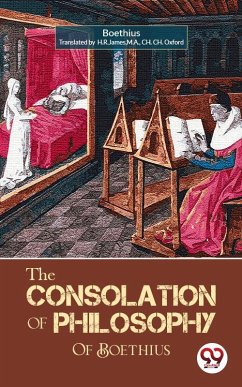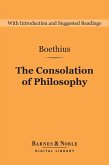In AD 523, when Boethius was imprisoned for a year as he awaited trial and, eventually, execution for the alleged crime of treason committed under the rule of the Ostrogothic King Theodoric the Great, he wrote On the Consolation of Philosophy.The author appeals to the Muses for assistance in writing poetry that adequately expresses his despair.The "wicked and unprincipled men" who rule Rome sentence, Boethius, to death. Boethius is promised by the philosophy that she would end his suffering, and she informs him that the "medicine" he requires is truth. They talk about Fortune, who they personify as a cruel goddess who arbitrarily moves individuals ahead or lower.The conversation in the book is between the author and a woman who symbolizes philosophy, according to Boethius. She contends that morality is all one possesses because it is unaffected by the ups and downs of life.Boethius talks about the nature of free will and predestination, the issue of evil, human nature, virtue, and justice. He queries if God has free will or if He sees and knows everything. According to Boethius, offenders should be handled with compassion and respect rather than mistreated.
Dieser Download kann aus rechtlichen Gründen nur mit Rechnungsadresse in A, D ausgeliefert werden.









